Despite critical acclaim for its believable characters, detractors often accuse The Last of Us of suffering from a generic plot: a trope-y travelogue of disconnected moments that lack a larger theme. Yet, these popular criticisms fail to see how that episodic structure actually reinforces a unified theme. Joel’s fear of vulnerability clearly connects the disparate vignettes that compose The Last of Us’s plot. His fear of intimacy is a symptom of his inability to cope with loss, a weakness that interferes with his repressed desire for a relationship worth fighting for.
A key storytelling technique the game deploys to illustrate Joel’s internal struggle is the use of literary foils. In each seemingly disconnected vignette, he meets characters who highlight, through their similar experiences, how his failure to be vulnerable is a recipe for disaster.
In the first vignette after the prologue, Joel awakes to a knock at his door. He jolts from bed and holds his head in his hands as the words “20 YEARS LATER” are superimposed on screen. The juxtaposition of his last scene, cradling his dying daughter in his arms, and this one implies that psychologically, he is still in the same emotional place we last saw him.
Enter Tess, Joel’s literal partner in crime. As one critic correctly observed back in 2017, Tess is the driving force behind all of his actions in the Boston quarantine zone and the catalyst for his relationship with Ellie. While both are as reckless as they are capable, it’s clear that he takes orders from her, not the other way around. He needs her more than she needs him.
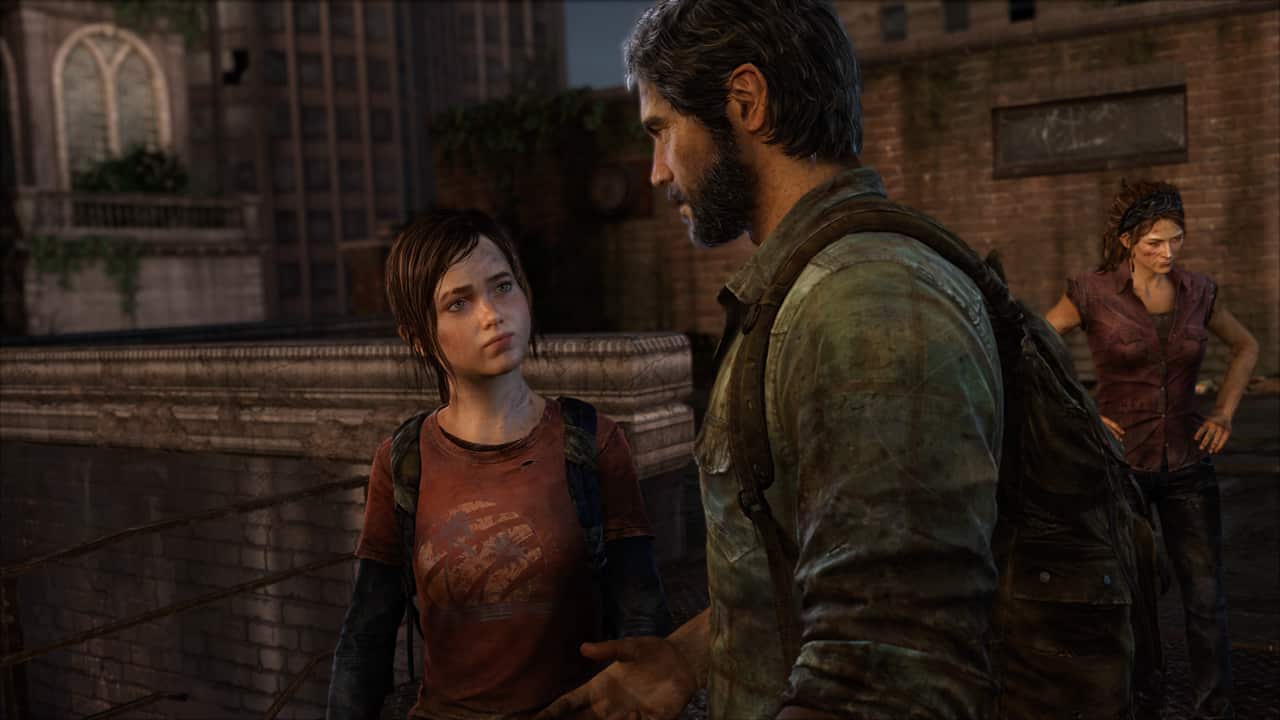
Tess constantly supplies Joel with tasks to distract him from his daughter, which allows him to continue a pattern of avoidance — until Ellie’s appearance forces him to make painful comparisons to his daughter Sarah. From the moment he is tasked with escorting Ellie out of the QZ, he is reluctant to take any responsibility for her and keeps her at a distance, remarking, “You wanna know the best thing about my job? I don’t gotta know why. To be honest with you, I could give two shits about what you’re up to.” And yet, on the journey out of the city, he looks at his watch whenever Ellie reminds him of what he’s lost.
Despite Joel’s desire to ditch Ellie, Tess convinces him to finally stop running away from his problems and take Ellie directly to the Fireflies’ lab to synthesize a cure. Dying from infection, she uses her relationship with him to motivate him to care, even a little, about what Ellie’s immunity represents.
Tess’ biggest difference from Joel is that when the chips are down, she is motivated to do good. He isn’t. Tragically, when he rebuffs Ellie for trying to offer her condolences, he emphasizes, “You don’t bring up Tess — ever.” He can’t process grief — only push away people who force him to confront it. The next section of the game, where Joel and Ellie travel to fellow smuggler Bill’s town to ask for a car, serves to dramatize the consequences of Joel’s misguided behavior.
Ellie finds the overly paranoid Bill off-putting, asking Joel what his deal is. Joel explains how to behave around him, even offering a defense: “Bill ain’t exactly the most stable of individuals… He don’t take too kindly to strangers. Bill’s a good guy; he just definitely needs some time warming up to you, that’s all.”
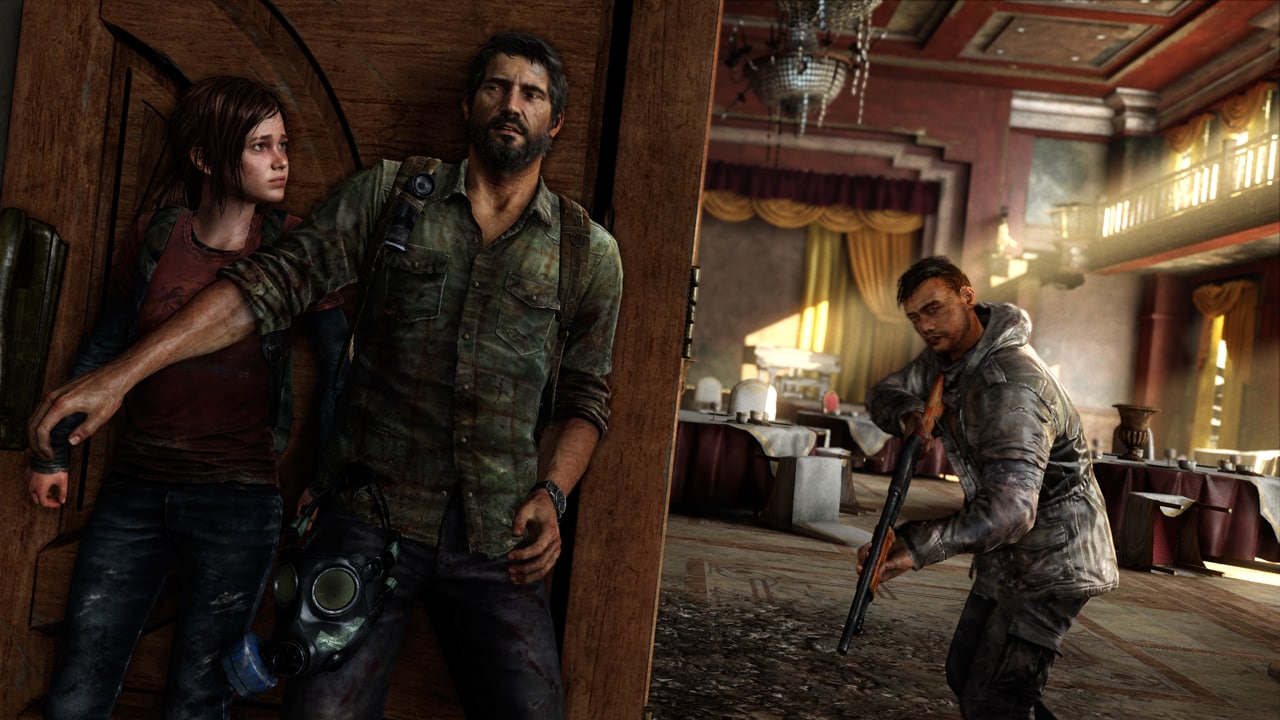
It’s no coincidence that Joel can empathize with Bill so well. He doesn’t chew Bill out when a snare trap nearly kills him and Ellie, forgives Bill when he holds the pair at gunpoint to check them for bites, and stops Ellie from breaking his shooting arm. The normally volatile Joel is at his most patient when defusing Bill’s fear and distrust.
It’s clear Bill hasn’t been around people for a very long time. He volunteers to Joel that he prefers the infected to the living, saying, “As bad as those things are, at least they’re predictable. It’s the normal people that scare me. You of all people should understand that.” In this way, Bill implies that the two smugglers are more alike than Joel would care to admit. Bill is simply a look into Joel’s potential future, a man too far gone to appreciate the value of people.
In his way, Bill tries to offer Joel what he thinks is good advice. He tells Joel to cut Ellie loose, sensing that Joel’s growing empathy for her is dangerous. Bill claims to have done just that with Frank, a trusted partner he had in the past. In actuality, Frank abandoned Bill because he hated Bill for wanting to stay in the same “shitty town” forever.
Bill represents the end result of Joel’s lifestyle if he doesn’t open up to Ellie: an unstable and paranoid man so ruled by fear and distrust that he pushes away those closest to him. He’s a cautionary tale.
Joel rejects Bill’s advice. He sees Ellie as more than a liability. As the bond between the pair grows, he is challenged to trust others. Even though the pain they bring him seems inevitable, being alone is worse.
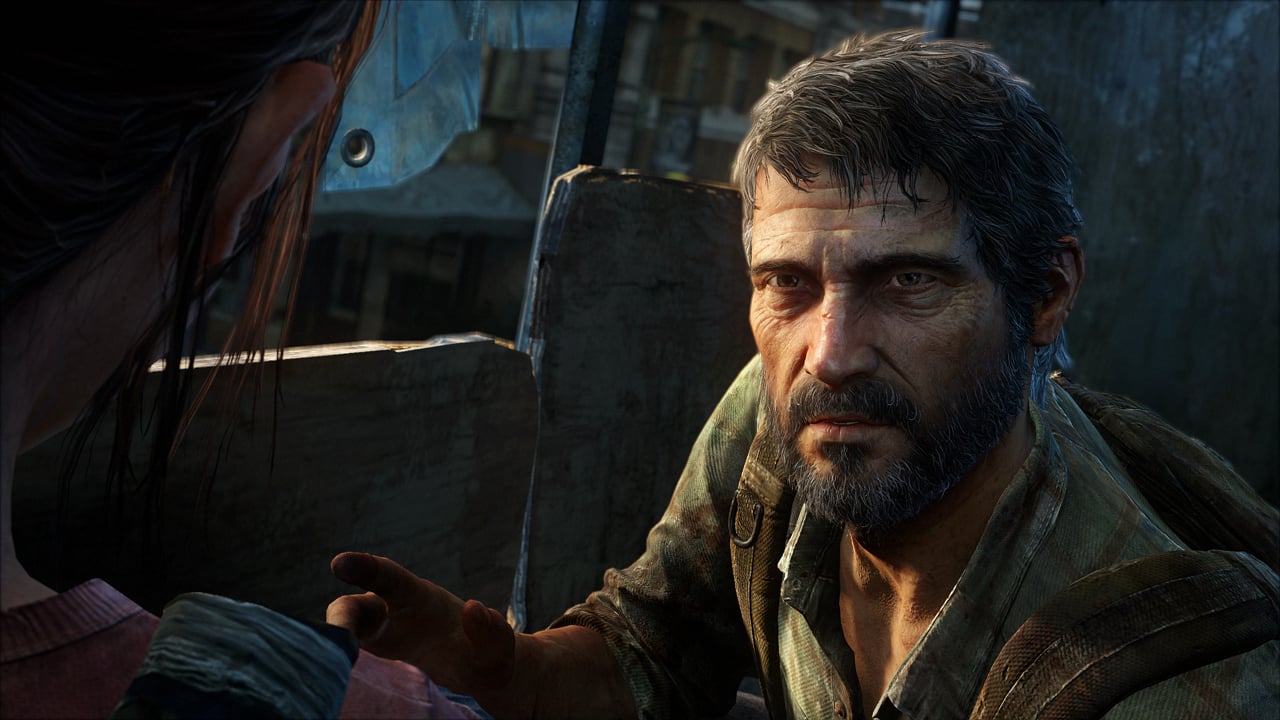
In Pittsburgh, our duo meets two other survivors, Henry and Sam. Henry is our window into who Joel could’ve been. They’re both from quarantine zones, traveling out west to find the Fireflies. They both have kids in their care and strict rules that they enforce. Both are willing to kill to protect their kids.
This commonality invites Joel to expand his circle of trust. When the four tourists team up to escape the city, Henry leaves Joel and Ellie behind when they can’t keep up. Later, when Joel and Ellie nearly drown, Henry goes back to rescue them with Sam now safe on land.
Joel is initially furious, accusing Henry of leaving them to die. But Henry counters: “No, you had a good chance of making it, and you did. But coming back for you meant putting him at risk. If it was the other way around, would you have come back for us?” Joel relents, able to see things from his perspective.
The easy familial intimacy of Henry and Sam represent a relationship ideal for Joel and Ellie. Ellie mentions it might be good to have the pair around, and the normally distrustful Joel agrees. He lets Henry in on the plan to get his brother Tommy’s help to find the Fireflies. We see him start to open up. But an encounter with a runner leaves Sam infected.
Henry is reluctant to kill his brother, but eventually he shoots Sam. Overcome with guilt and grief, Henry commits suicide. Henry’s suicide highlights why Joel feels the need to engage in his cruel system of pain avoidance. Fear of losing Ellie is the biggest barrier to Joel letting her into his heart, as the guilt may prove too much.
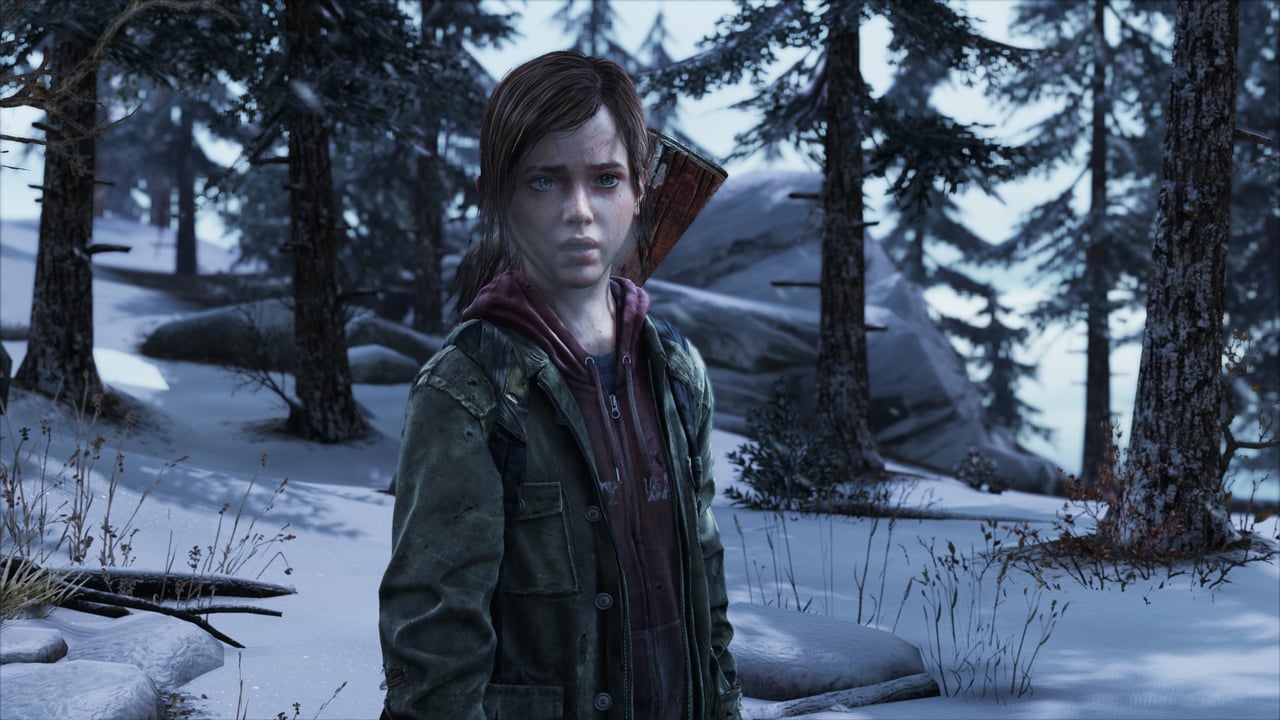
The final vignettes force Joel to confront his pain from every angle. When Ellie asks him how he feels about seeing his brother again after their rift apart several years ago, he admits he doesn’t know. He doesn’t want to reopen old wounds — Sarah’s death, the person he became when his world was torn apart, and the incompatible worldviews that ruined his relationship with Tommy.
By contrast, Tommy is able to put his past behind him in a way that Joel clearly resents. Joel sees his ability to grow and change his values as a lack of conviction, but when we meet Tommy, Joel’s self-deception becomes obvious.
Tommy is surprised but happy to see Joel. He’s married to the leader of a thriving, self-sustaining community. Their settlement in Jackson County has electricity, crops, livestock, horses, and around 20 families. His world was destroyed just like Joel’s, but he found a way to help rebuild it.
Joel tries to pawn off Ellie by appealing to Tommy’s idealism for the future. Tommy refuses — he isn’t selfish like Joel and doesn’t want to abandon his family in Jackson. After bribing, preaching at, and outright threatening Tommy, Joel is able to convince him, only because Tommy recognizes Joel cares for Ellie like he cared for Sarah.
Ellie is repulsed by Joel’s decision to give her away. And who could blame her? He’s making decisions about her life without the decency to consider her feelings or be honest about his. He tries to frame his abandonment attempt as pragmatic, but Ellie says what we’re all thinking and makes him face his fears: “I’m sorry about your daughter Joel, but I have lost people too. (…) Everyone I have cared for has either died or left me. Everyone – fucking except for you. So don’t tell me I would be safer with someone else – because the truth is I would just be more scared.”
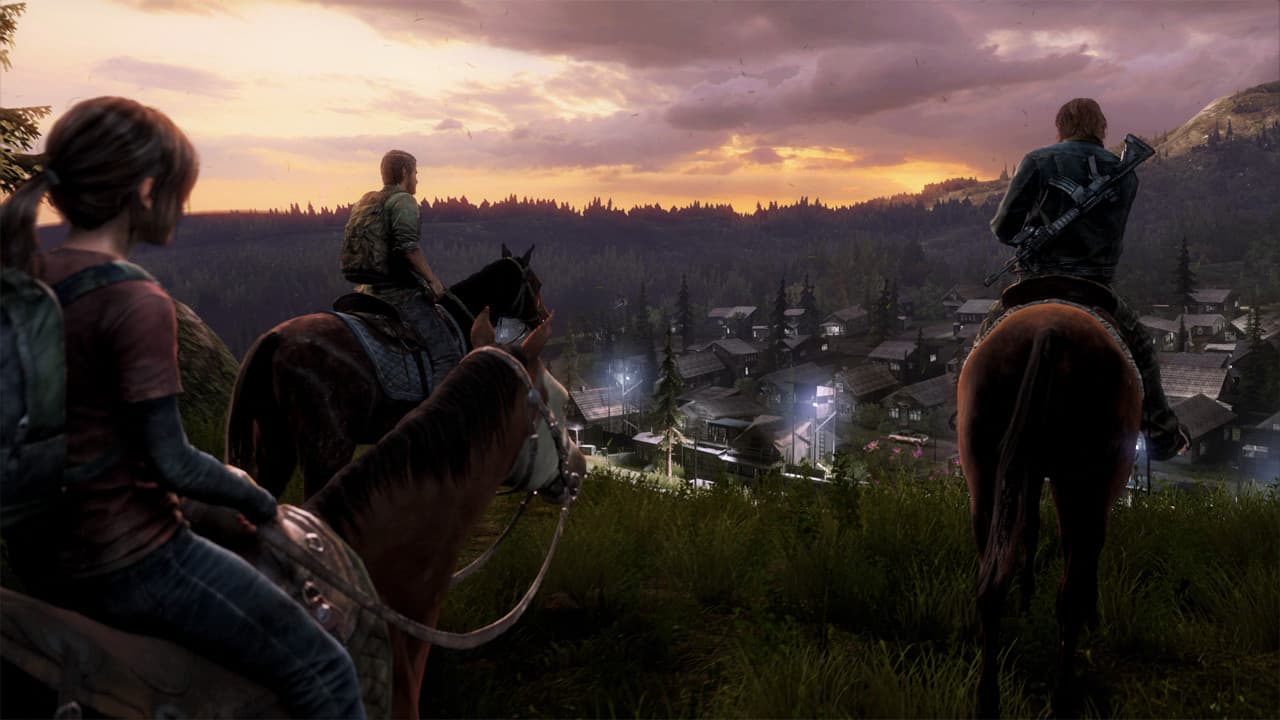
Ellie explicitly reveals to Joel that his coping mechanisms don’t work. By running away to protect himself from losing his loved ones, he’s really just abandoning people that need his help dealing with their own loss. He’s hurting people that are just like him.
Though Joel denies Ellie is his daughter, both she and Tommy understand he trusts her like he did Sarah when he agrees to continue his journey with her. He seemingly makes his peace with letting her in and puts his life in her hands. But the ending reveals that though Joel has learned to be vulnerable again, he will inevitably damn the world to avoid loss.
The Last of Us’s plot is solely in the service of its character work. The vignettes show us that Joel is stuck between a rock and a hard place. To survive, he’s compelled to shun relationships with others and the vulnerability that entails. But survival isn’t worth it if you have nothing and no one to live for. Even the act of saving all of humanity amounts to nothing if you’re alone. All of life is risk, but it’s a false dichotomy to think you must choose between survival and love.
The Fireflies tell Joel that the fate of humanity hangs in the balance. But the story tells us that it’s Joel’s humanity that hangs in the balance. To him, Ellie means everything. He won’t sacrifice her for “the greater good.” He already lost the one thing in the world that mattered to him; the greater good can go fuck itself. Joel’s relationship with Ellie allows him to rediscover his humanity, but his inability to accept Ellie’s death dooms humanity.

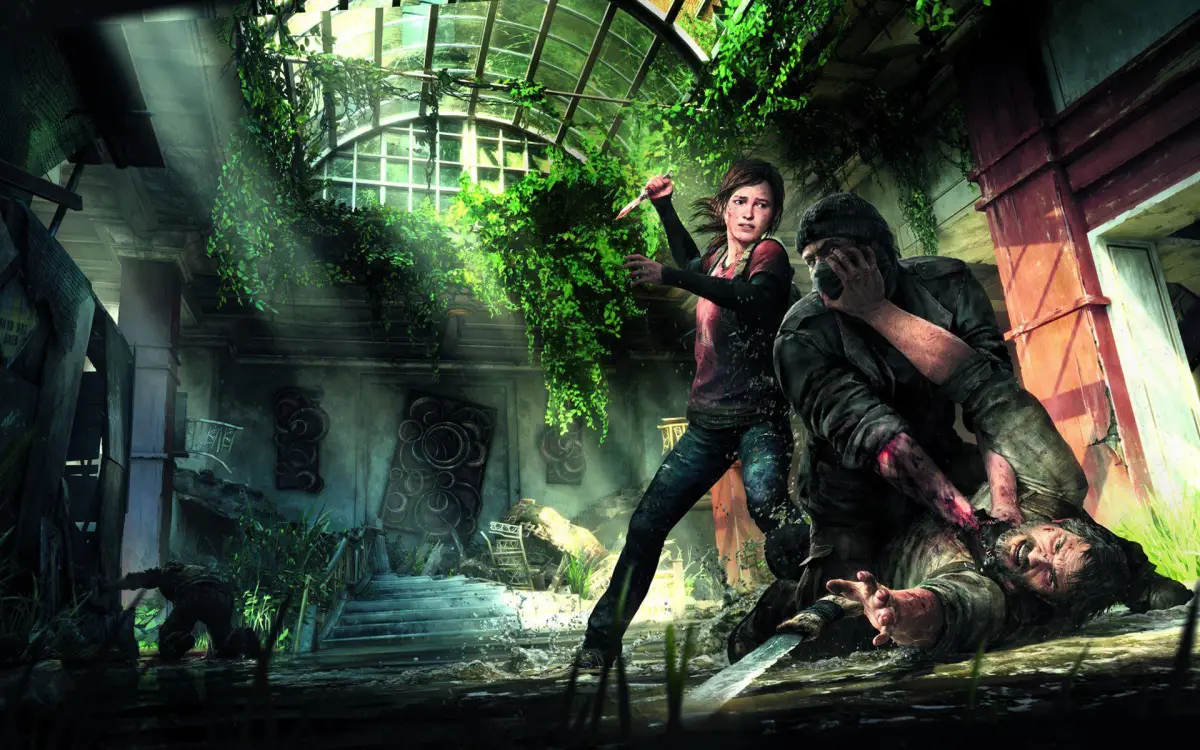




Published: Jun 25, 2020 02:00 pm